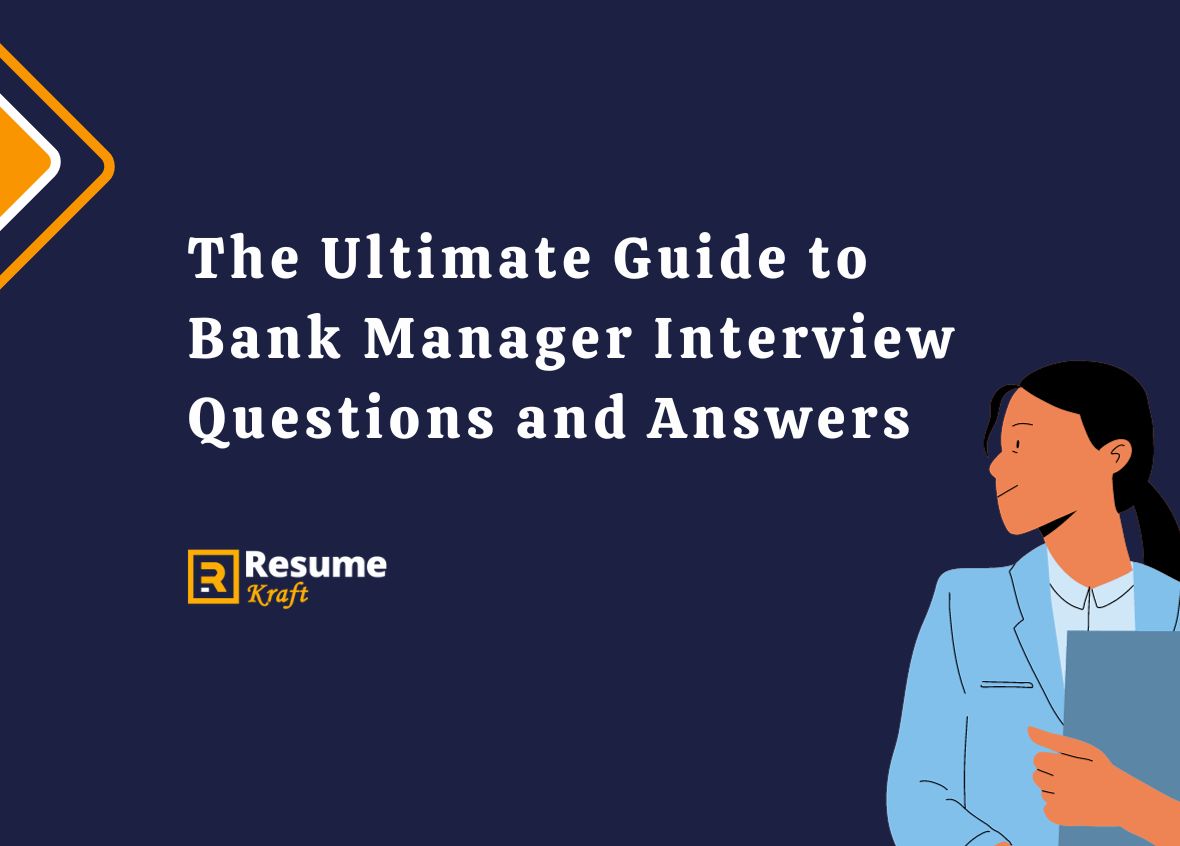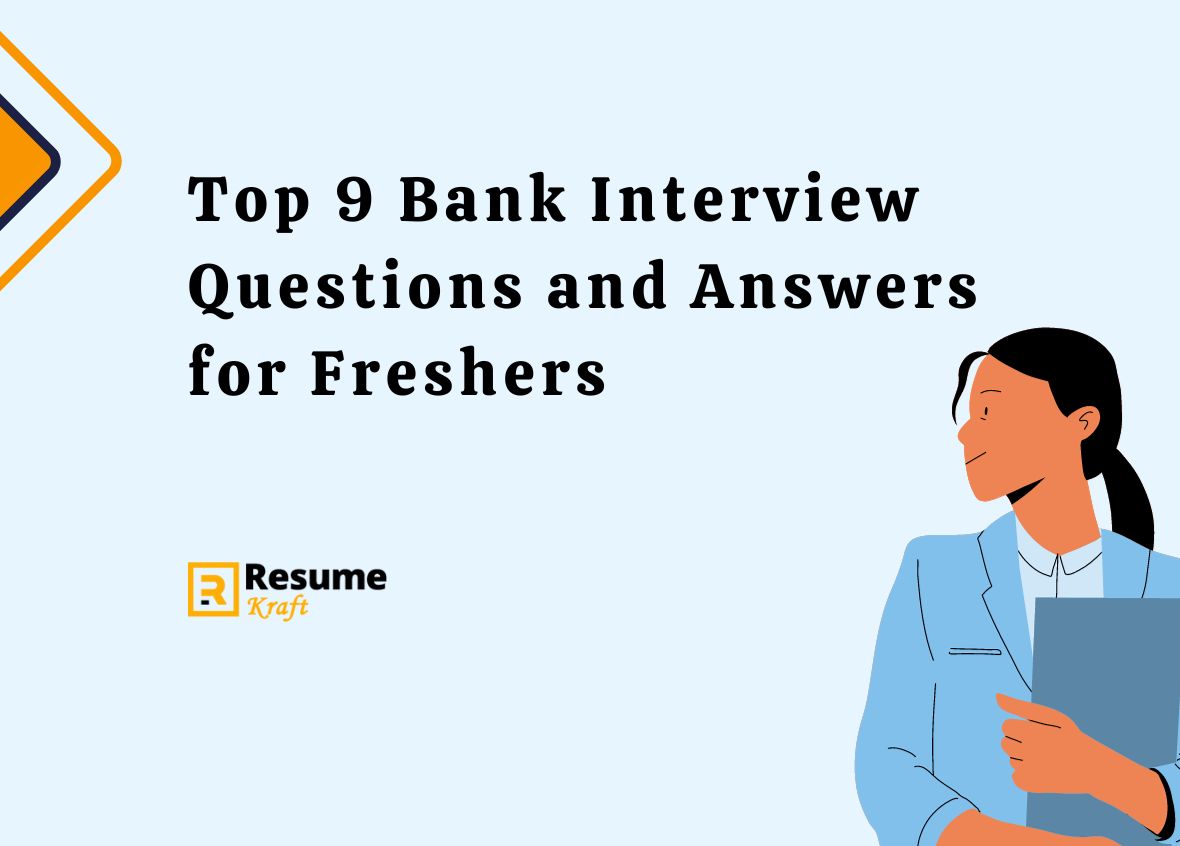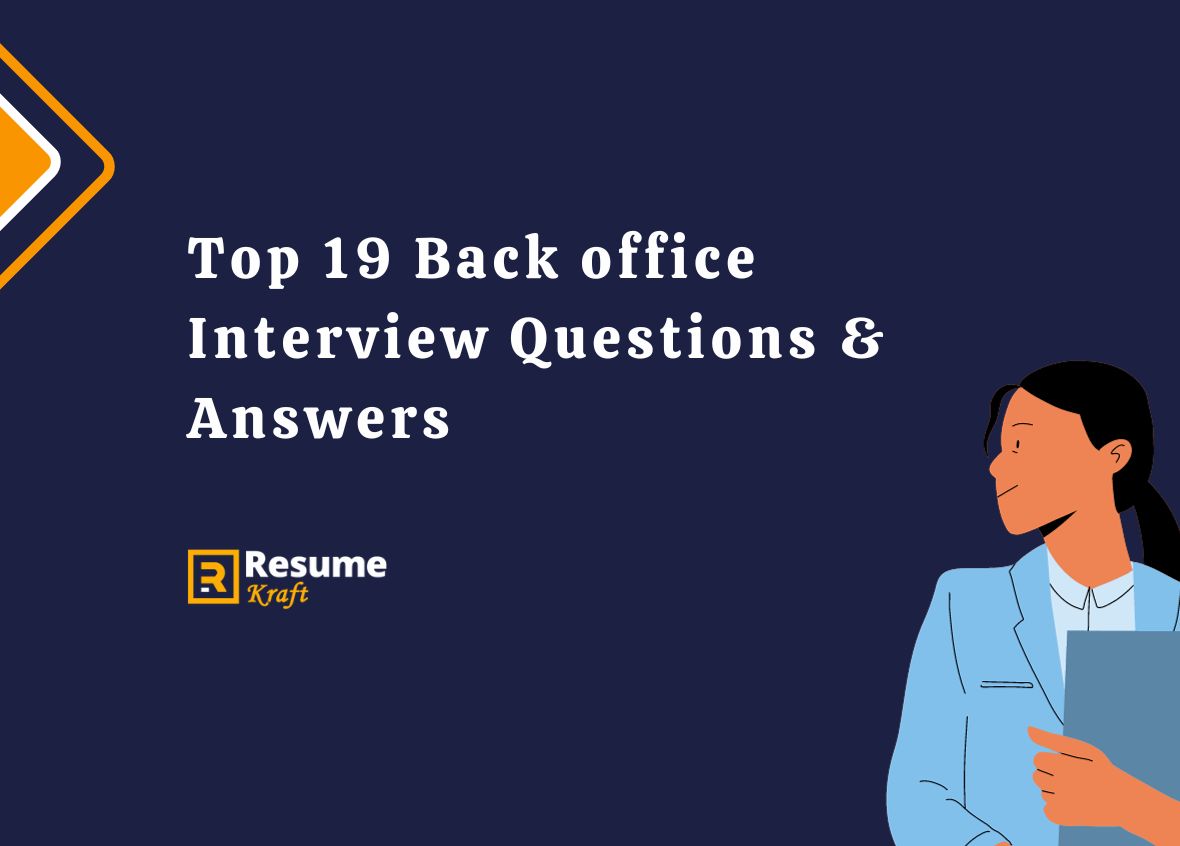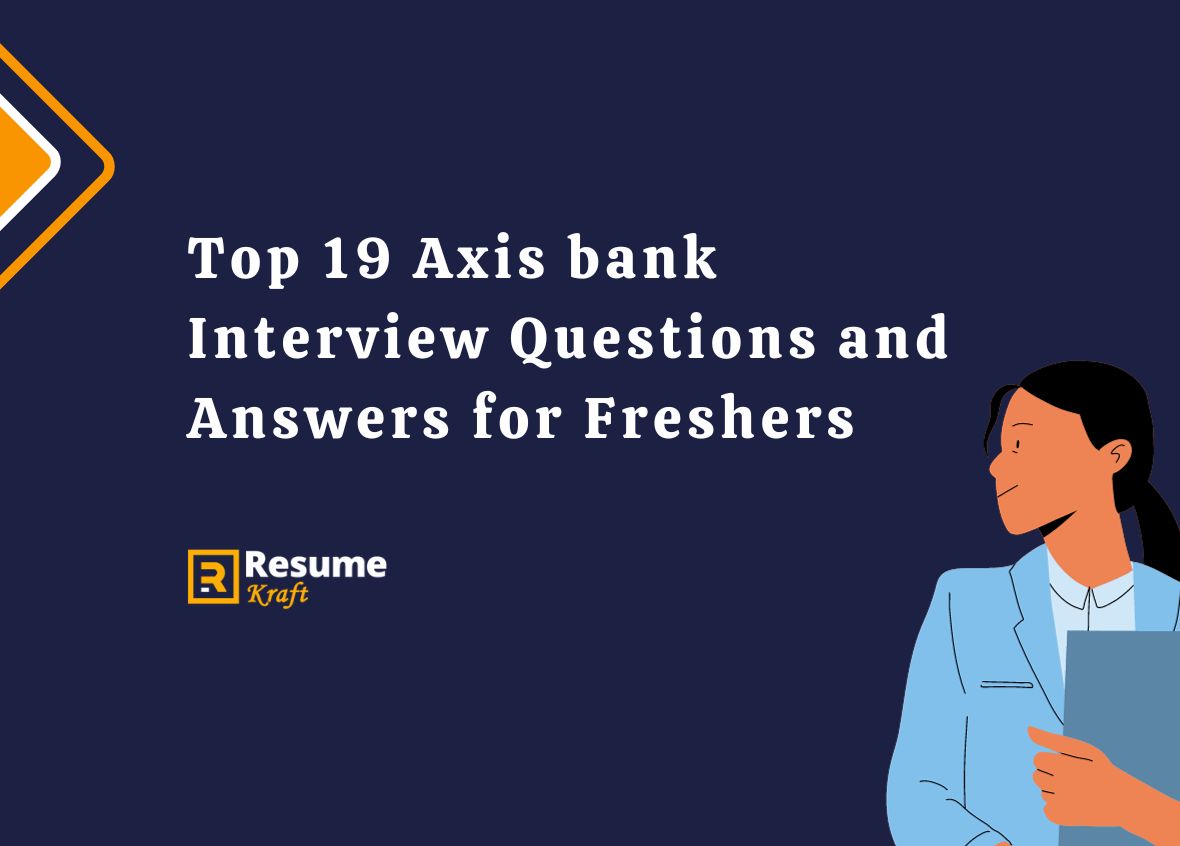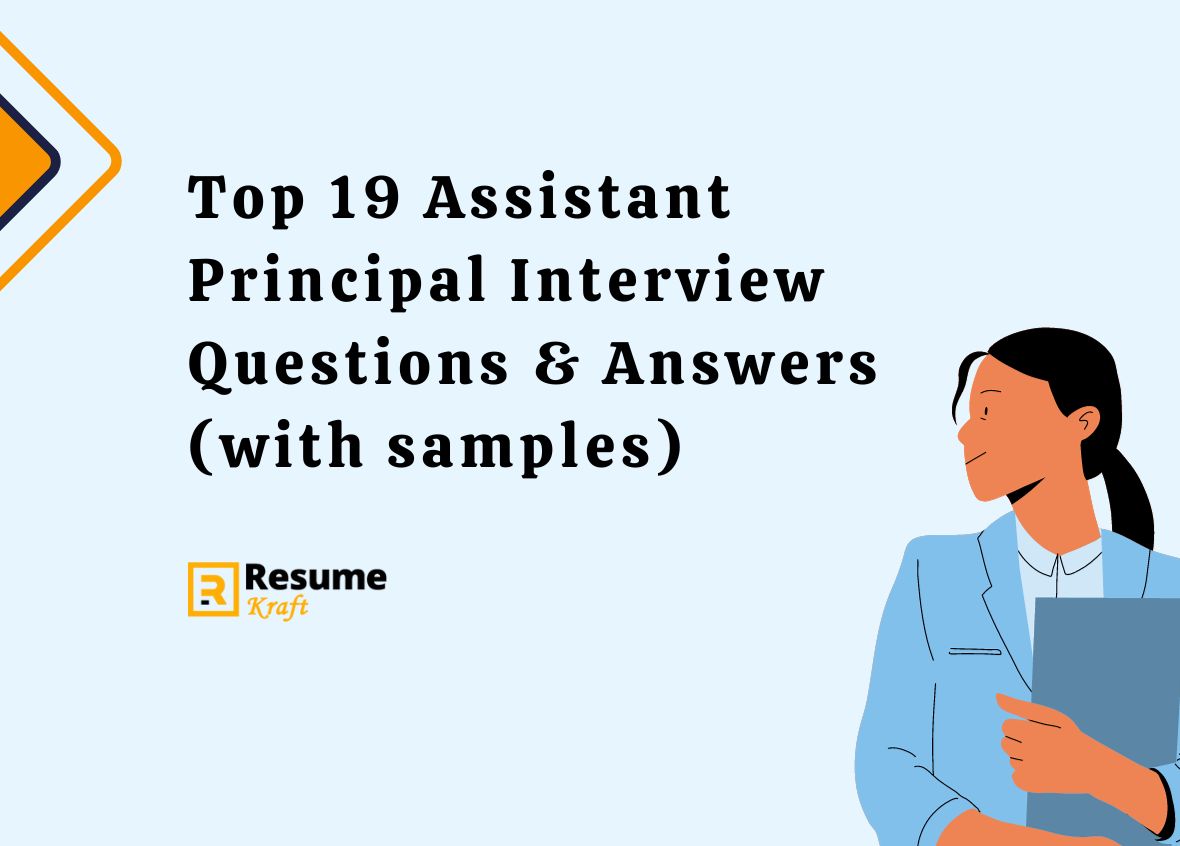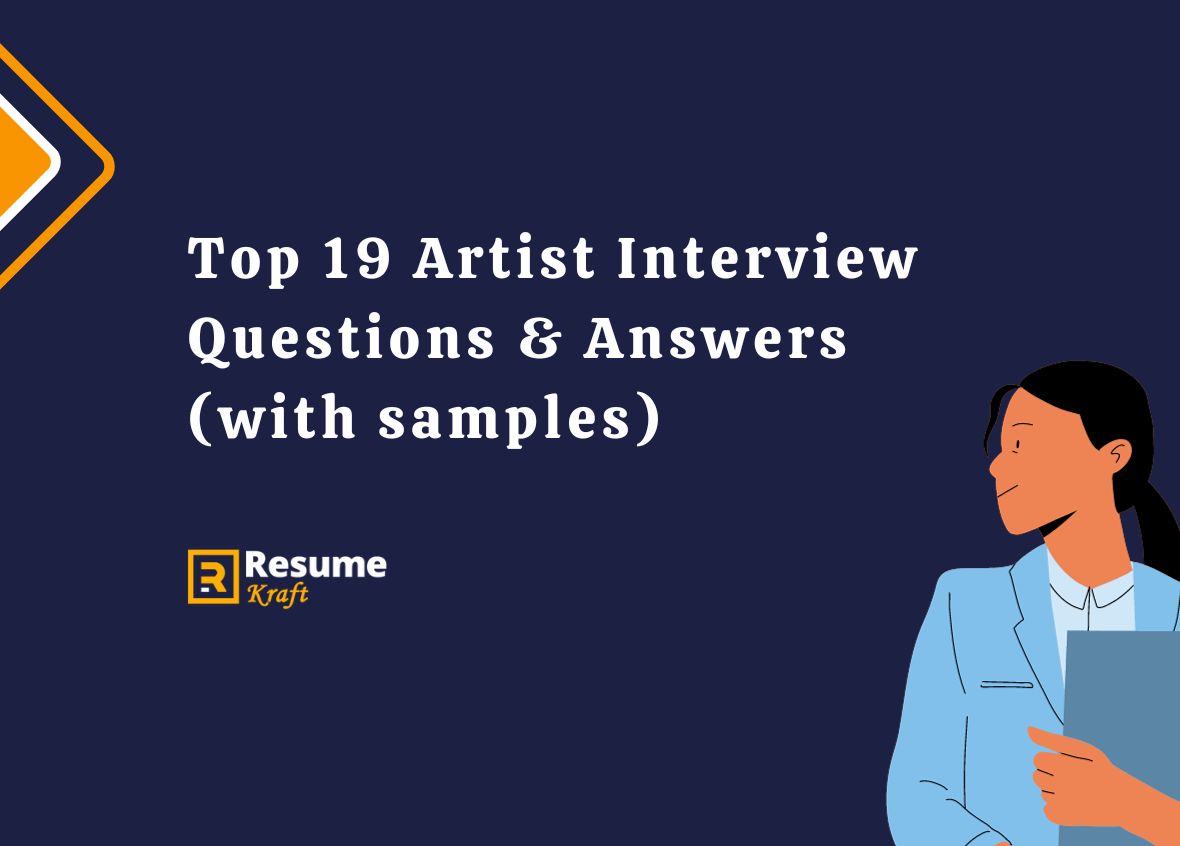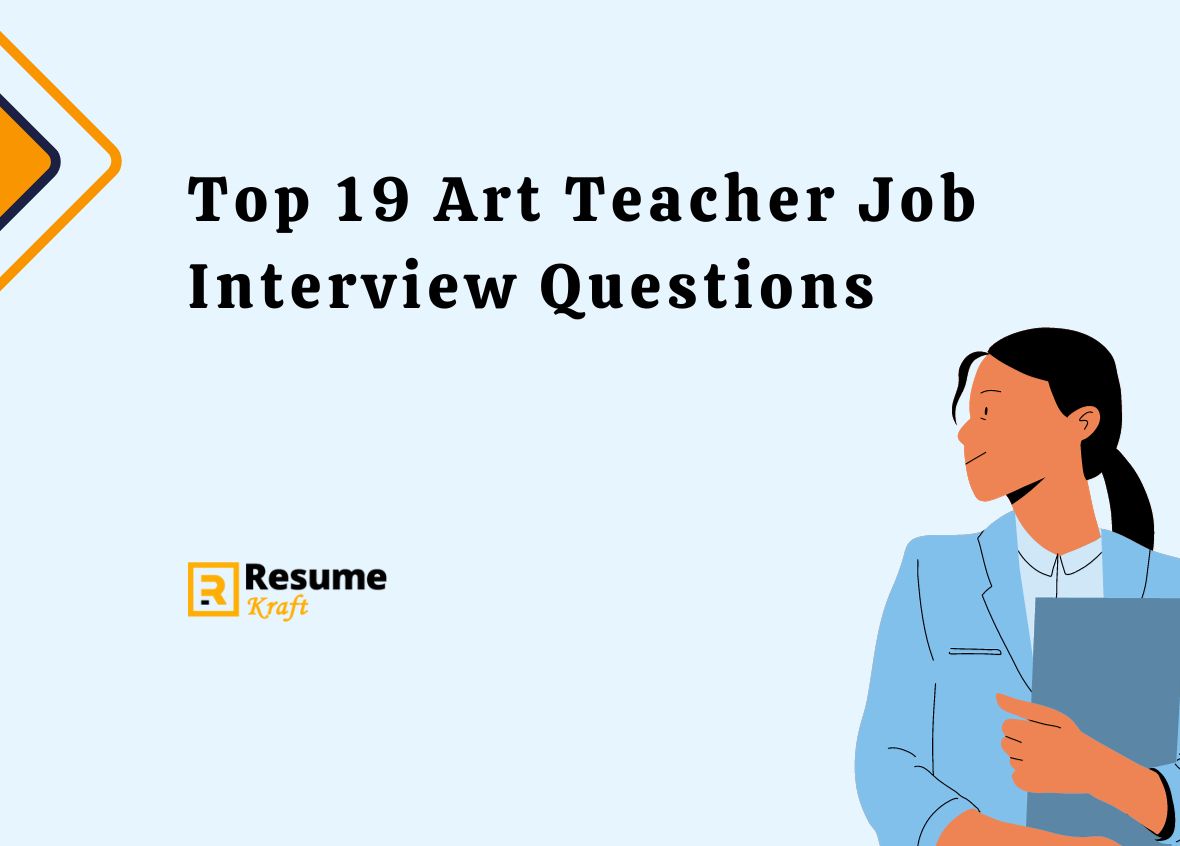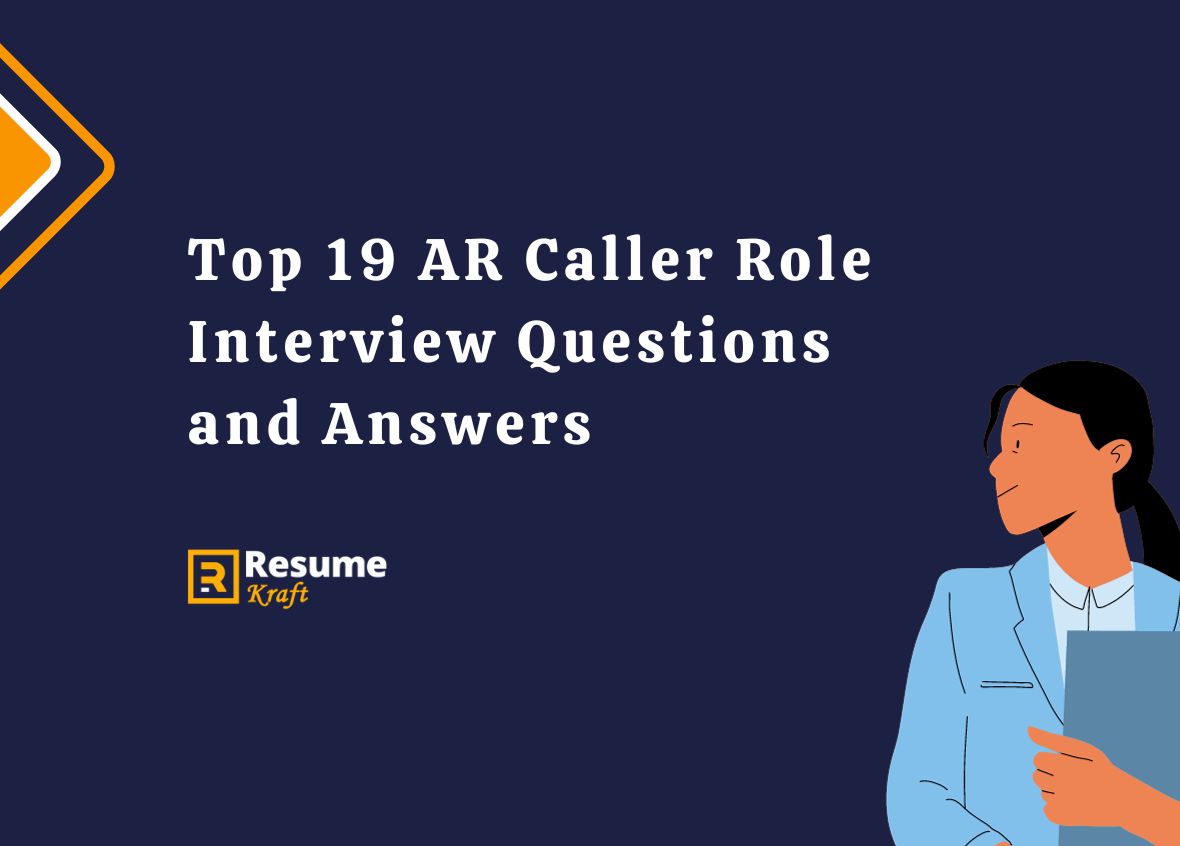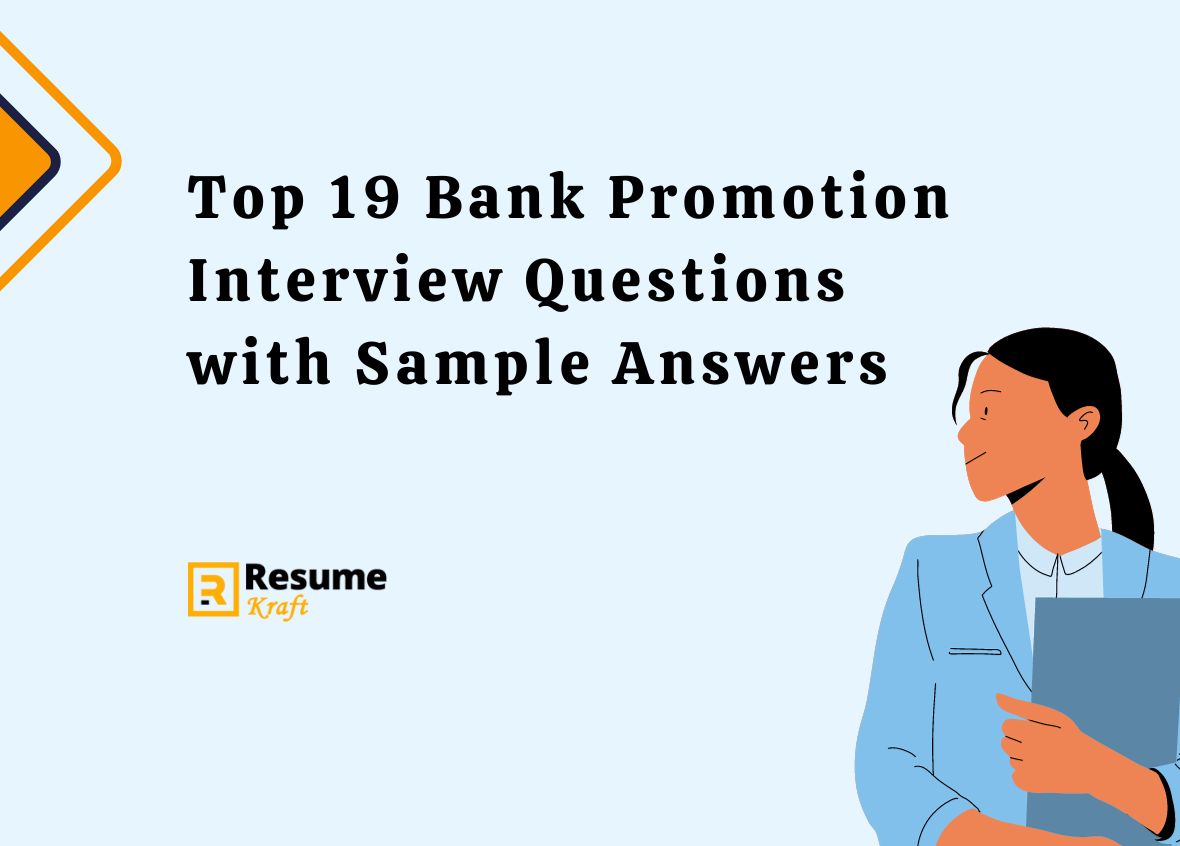
Top 19 Bank Promotion Interview Questions with Sample Answers
Promotions within a banking institution are not only a mark of achievement but also an exciting opportunity for career growth. They bring more responsibilities, challenges, and, most importantly, the need to go through another round of interviews. You’ve already been working at the bank, so you know the ropes, but how do you prepare for a promotion interview? In this in-depth guide, we will cover 19 key bank promotion interview questions that you are likely to face, complete with sample answers to get you promotion-ready.
Bank promotion interviews are uniquely challenging. Unlike entry-level interviews, you are now expected to have a more nuanced understanding of the banking industry, the institution you work for, and the specific role you are aiming to secure. This guide aims to provide you with targeted advice to help you excel in your bank promotion interview.
- Top 19 Bank Promotion Interview Questions and Answers (with samples)
- 1. What motivates you to seek a promotion within our bank?
- 2. Can you discuss your most significant achievement in your current role?
- 3. How do you handle stress and high-pressure situations?
- 4. What do you believe are the most pressing challenges facing our bank today?
- 5. Describe a situation where you had to resolve a conflict within your team.
- 6. Can you discuss your management style?
- 7. How do you prioritize your work?
- 8. How do you handle underperforming team members?
- 9. What are your long-term career goals?
- 10. Describe your experience with budget management.
- 11. How do you stay updated on banking industry trends?
- 12. How would you handle an ethical dilemma at work?
- 13. How do you plan to achieve the targets set for your new role?
- 14. Can you give an example of when you had to make a difficult decision and what you learned from it?
- 15. How do you evaluate success?
- 16. What do you consider to be the most essential quality for a leadership role?
- 17. Can you describe your experience with cross-departmental collaborations?
- 18. What steps would you take in your first 30 days after promotion?
- 19. Why should we promote you?
- Conclusion
Top 19 Bank Promotion Interview Questions and Answers (with samples)
Let’s jump right into the questions. Remember, these questions and answers are designed to fit a wide range of roles within a bank—be it operations, risk management, customer service, or investment banking. Your answers should ideally be tailored to your experiences and the role you’re aiming for.
1. What motivates you to seek a promotion within our bank?
This question probes into your career ambitions and tests whether your goals align with the organization’s objectives.
Sample Answer
“Having worked with the bank for over three years, I have developed a deep appreciation for its culture, ethics, and the emphasis it places on customer satisfaction. I see this promotion as an opportunity to contribute more effectively to the team and the bank at large, using the skills and insights I have gained so far.”
2. Can you discuss your most significant achievement in your current role?
The interviewer wants to gauge how you have added value to your current position and what you will bring to the new role.
Sample Answer
“In my current role, I led a project that streamlined the loan approval process, making it 30% faster and improving customer satisfaction rates. This project not only enhanced efficiency but also bolstered our team’s reputation for being customer-centric.”
3. How do you handle stress and high-pressure situations?
Banking jobs can get stressful, especially when you’re stepping into a higher role with more responsibilities.
Sample Answer
“I thrive under pressure and see it as an opportunity to showcase my skills. During year-end audits, I managed my team effectively, ensuring that we met all deadlines without compromising on quality, proving that stress can indeed be a great motivator.”
Build your resume in just 5 minutes with AI.

4. What do you believe are the most pressing challenges facing our bank today?
This question evaluates your awareness of the banking industry and your analytical skills.
Sample Answer
“The rise of fintech companies poses a significant challenge, taking away a share of services traditionally held by banks. Cybersecurity is another critical concern. I believe adapting to digital transformation and enhancing cybersecurity measures are vital steps for our bank.”
5. Describe a situation where you had to resolve a conflict within your team.
Conflict resolution is an important aspect of any managerial role.
Sample Answer
“When two team members disagreed on a project approach, productivity was suffering. I intervened by organizing a meeting where each could present their points. We then reached a consensus by combining elements from both approaches, resulting in a more robust solution and a harmonious team.”
6. Can you discuss your management style?
This question is crucial if you’re stepping into a managerial role, and it aims to understand how you will lead your team.
Sample Answer
“I would describe my management style as ‘participative.’ I believe in consulting my team before making decisions, as it boosts morale and ensures that the team owns the project. However, I am not averse to taking charge when the situation calls for immediate action.”
7. How do you prioritize your work?
Being organized is crucial, especially when you’re managing multiple tasks or leading a team.
Sample Answer
“I swear by the Eisenhower Box technique to prioritize tasks as urgent/important, important/not urgent, urgent/not important, or neither. This helps me allocate my time effectively, ensuring I meet deadlines without getting overwhelmed.”
8. How do you handle underperforming team members?
Effective team management is a balance between getting the job done and maintaining high morale.
Sample Answer
“For underperformers, I first try to understand the reason behind the decline in performance. Once identified, I work closely with them to address the issue, be it through additional training, mentoring, or realigning tasks to suit their strengths.”
9. What are your long-term career goals?
Interviewers want to ensure that promoting you aligns with your career goals and the company’s objectives.
Sample Answer
“In the long run, I see myself in a leadership role that allows me to contribute strategically to the bank’s growth. I am particularly interested in working on projects that involve innovation and transformation within the banking sector.”
10. Describe your experience with budget management.
Handling budgets is often part of higher roles within banking, and your experience here can be a crucial factor.
Sample Answer
“In my current role, I was responsible for managing a budget of $2 million for a customer outreach program. Through careful planning and regular monitoring, the program was executed 10% under budget while exceeding performance targets.”
11. How do you stay updated on banking industry trends?
Keeping up-to-date with the latest trends is vital for any advanced role in banking, especially in a dynamic sector that’s constantly evolving.
Sample Answer
“I regularly read industry-specific publications like The Wall Street Journal and Financial Times. I also subscribe to newsletters from financial consulting firms and attend webinars and conferences to stay abreast of the latest trends and technologies affecting the banking industry.”
12. How would you handle an ethical dilemma at work?
This question assesses your ethical compass and decision-making skills.
Sample Answer
“If I faced an ethical dilemma, I would consult the bank’s policies and guidelines first. If the situation remained ambiguous, I would discuss it confidentially with my supervisor or the ethics committee to ensure that any action taken aligns with the bank’s core values and legal obligations.”
13. How do you plan to achieve the targets set for your new role?
Your answer should reflect your planning and strategy execution skills.
Sample Answer
“Achieving targets would be a multi-step process for me. It begins with understanding the expectations and breaking down the overall target into achievable milestones. I would also identify the resources needed and potential challenges, creating contingency plans for any roadblocks.”
14. Can you give an example of when you had to make a difficult decision and what you learned from it?
This is a classic behavioral question meant to evaluate your decision-making skills.
Sample Answer
“Once, I had to choose between two equally qualified candidates for a role in my team. After much deliberation, I chose the candidate whose skills aligned more closely with our immediate project needs. The experience taught me the importance of strategic decision-making in team building.”
15. How do you evaluate success?
Success can be subjective, and the interviewer wants to know how your metrics align with the organization’s goals.
Sample Answer
“To me, success is not just meeting the targets or deadlines, but also how the journey towards these goals fosters team cohesion, client satisfaction, and individual growth. The quantitative metrics are important, but the qualitative aspects can be equally telling.”
16. What do you consider to be the most essential quality for a leadership role?
Your answer should highlight what you feel is a non-negotiable trait for anyone stepping into a higher role.
Sample Answer
“The most essential quality for leadership is the ability to inspire and motivate a team. A leader should not only be competent but should also empower those around them, creating an environment where each member can excel.”
17. Can you describe your experience with cross-departmental collaborations?
Your ability to work across departments is often crucial when you’re moving up the ranks.
Sample Answer
“In my current role, I’ve coordinated projects involving both the IT and marketing departments. This required careful planning and constant communication to align our objectives and timelines. The experience has prepared me for multidisciplinary roles.”
18. What steps would you take in your first 30 days after promotion?
This question tests your foresight and planning capabilities.
Sample Answer
“In the first 30 days, I plan to meet individually with team members to understand their roles, challenges, and expectations. I would also review current projects and performance metrics to set immediate and long-term goals for the team.”
19. Why should we promote you?
This is your chance to sell yourself. Make sure your answer aligns with the needs of the bank and the role you’re aiming for.
Sample Answer
“I bring a unique blend of technical skills, industry knowledge, and a proven track record in my current role. My dedication to driving both personal and team success makes me well-suited for this new challenge.”
Conclusion
You’ve made it through our comprehensive guide covering the top 19 bank promotion interview questions and answers. A promotion within a bank is an exciting yet challenging opportunity that comes with its own set of hurdles. With proper preparation, you can walk into the interview room with confidence, ready to tackle any question thrown your way. Good luck, and may you climb up the corporate ladder with aplomb.
Remember to utilize resources like AI Resume Builder, Resume Design, Resume Samples, Resume Examples, Resume Skills, Resume Help, Resume Synonyms, and Job Responsibilities to create a standout application and prepare for the interview.

Build your resume in 5 minutes
Our resume builder is easy to use and will help you create a resume that is ATS-friendly and will stand out from the crowd.

